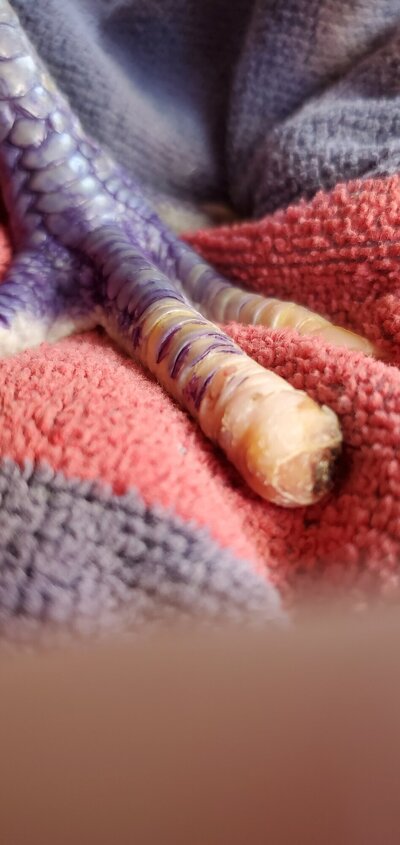anniegal
Songster
I've been trying to figure out the issue with one of my Polish hens toes for several weeks now and - after first thinking & treating for SLM with little improvement - my reading here (BLESS YOU ALL for sharing your experiences) is making my think this is frostbite...
Just hoping to get some confirmation/thoughts from others who've dealt with this.
Ann

(attaching recent pics, including her perfectly healthy L foot - how is THAT possible?!?)
Just hoping to get some confirmation/thoughts from others who've dealt with this.
Ann

(attaching recent pics, including her perfectly healthy L foot - how is THAT possible?!?)








